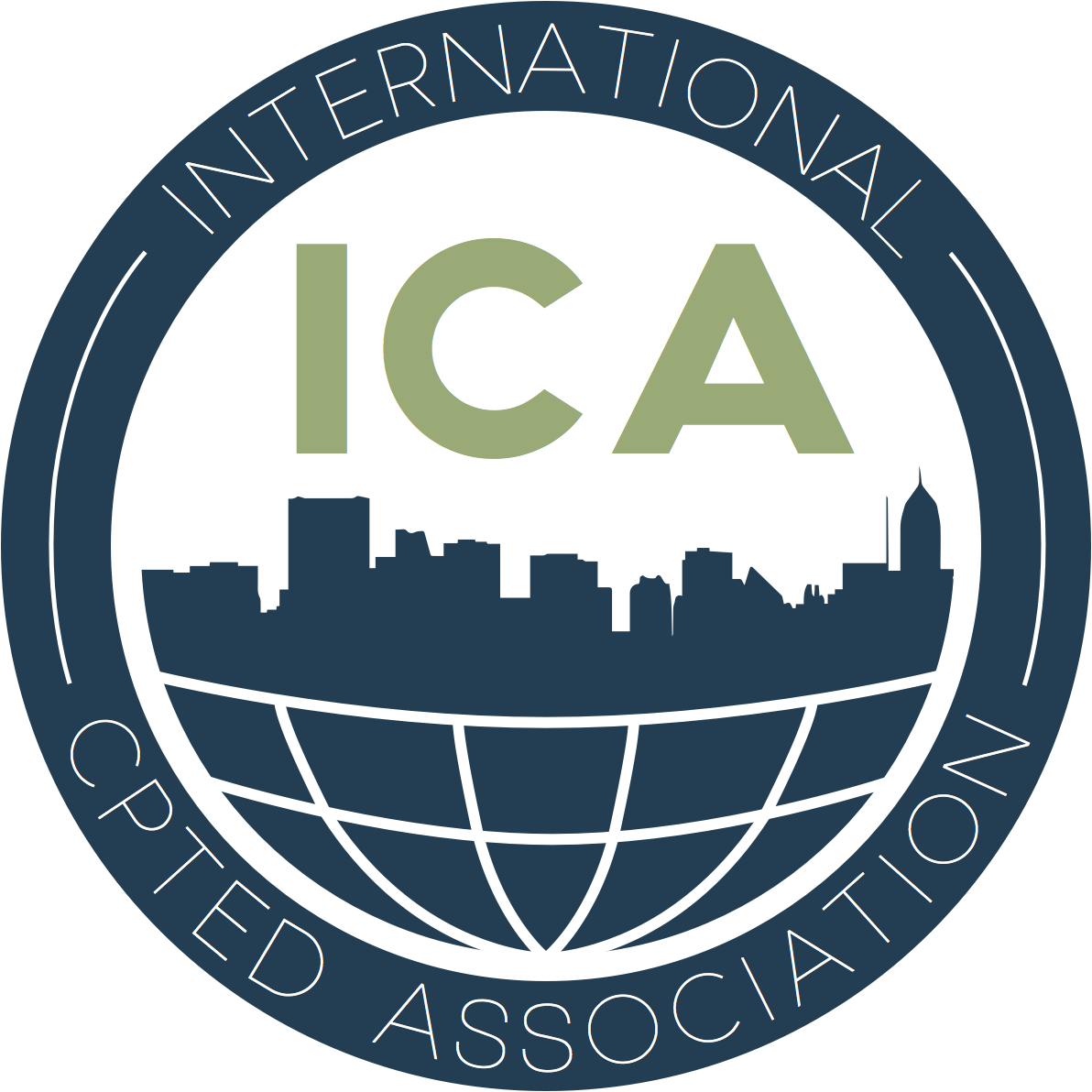The recording of the webinar can be found on our
ICA webinars page.
***
SPECIAL ICA WEBINAR:

EXCLUSION VERSUS INCLUSION -
IN CPTED EVERYONE HAS A ROLE
A special ICA webinar discussing recent accusations arguing that CPTED is exclusionary and that it targets minority groups. Join us at this vibrant discussion where our panelists will share their experience and discuss the role of CPTED in creating safer spaces and in building livable communities.
14 November 2020
17:00 GMT
10:00 MST (e.g. Calgary)
11:00 CST (e.g. Mexico City)
12:00 EST (e.g. New York)
18:00 CET (e.g. Amsterdam)
22:30 IST (e.g. New Delhi)
04:00 AEDT (+1) (e.g. Sydney)
06:00 NZDT (+1) (e.g. Auckland)
At a time of racial unrest, hostile architecture, and claims of "spatial anti-blackness", CPTED is at a crossroads. There have been calls for removing CPTED from university curricula and elimination of CPTED from urban design guidelines. At the same time, responsible CPTED practitioners are asking how to move forward.
In this special ICA webinar our panelists will be discussing some of the possible reasons for this portrayal and why the ICA as the leading global CPTED organization disagrees with vilification of CPTED as a crime prevention approach that is in its essence intended to be inclusive and participatory.
In this open discussion 4 experts in CPTED, civic participation and urban design will offer their experience and ideas on CPTED and inclusion.
Our panel will also be answering your questions. If you have any topic-related questions for the panel, please enter them in the relevant section during registration. Alternatively, you can also email questions to us or pose them in the comment box during the live webinar session.
The webinar will be presented in English.
Please share this with anyone who you think might benefit from learning more on this topic.
We look forward to connecting with you!
Who should attend: CPTED professionals, safety and crime prevention specialists, public officials, safety and security consultants, police officers, academics, students, researchers, architects, planners, criminologists, sociologists, social engineers, decision-makers, civic activists, and others.
Panelists:
Dr. Macarena Rau Vargas
ICA President
Architect, Master and PhD in Urban Planning with extensive experience leading Urban Security Projects and Initiatives, both public and private, in Chile and in various countries in Latin America and the Caribbean.
Specialist in the CPTED methodology (Crime Prevention Through Environmental Design) with proven success in diagnosing, designing, executing and evaluating Violence and Crime Prevention projects from an Environmental perspective with experience in applying and teaching CPTED in various countries across the world.
- President of the International CPTED Association (ICA; www.cpted.net).
- President and founder of the Corporation for the Prevention of Crime Through Environmental Design in Chile (www.cpted-region.org).
- Executive Director and founder of Publika Consulting Company (www.pbk.cl).
- Member of the Scientific Committee of Urban Life 2005, Sweden. (www.urbanlife2005.com).
- Reviewer at Journal of Applied Security Research 2020 (Routledge).
Email: president@cpted.net
Barry Davidson
ICA Treasurer/Co-founder
Barry is the Chief Solutions Pathfinder at Davidson Advisory Group Inc. and a leader in global high risk industries, providing regulatory, policy and strategic advisory services around the world. He is an internationally recognized security and business strategy consultant with more than 30 years experience in strategic & crisis management. Barry works with private enterprise, not-for-profit organizations as well as government and is called upon regularly to advise on sensitive/volatile issues.
Barry founded the Graffiti Response & Information Team (GRiT), a community-based intelligence gathering and education non-profit organization based in Calgary, Canada and was previously the Director of Strategic Engagement at the Canadian Crime Prevention Center. Barry is ICCP-Advanced certified CPTED Practitioner and holds an Honors Diploma in Police Sciences. He was recognized as a ritual abuse/cult expert by CAN (Cult Awareness Network) in the 1980’s and received the President's Award from the International Society of Crime Prevention Practitioners (ISCPP) for his work.
Email: barry.davidson@cpted.net
Gregory Saville
ICA Inaugural President/Co-founder
Gregory Saville is a criminologist, urban planner and former police officer. He is co-founder of the International CPTED Association and chairperson of the ICA course accreditation committee. He currently runs AlterNation LLC, an international consulting firm based in Denver, Colorado. He is co-author of SafeGrowth: Building Neighborhoods of Safety and Livability and also You In Blue: A Guide for the New Cop.
Email: gregory.saville@cpted.net
Pamela B. Daniels
Community Relations Specialist
Pamela B. Daniels is a sustainability focused, community and economic development strategist, with over 18 years of experience in community organizing and engagement, hospitality and operations management, environmental advocacy, and whole-community ecosystem growth. Pamela is a seasoned program director, corporate communicator, grant writer/administrator, and content developer.
Pamela was trained in SafeGrowth and has completed project work in New Jersey. She was a presenter at the New Jersey SafeGrowth Summit in 2019 and joined the SafeGrowth Network that same year.
As a publicist and business development consultant through her own brand, The Brickerati Group, Pamela produces audience engagement and brand growth campaigns and productions for clients, who are impact-driven enterprises, municipalities, non-profits, and artists.
Email: pamela@thebrickerati.com
